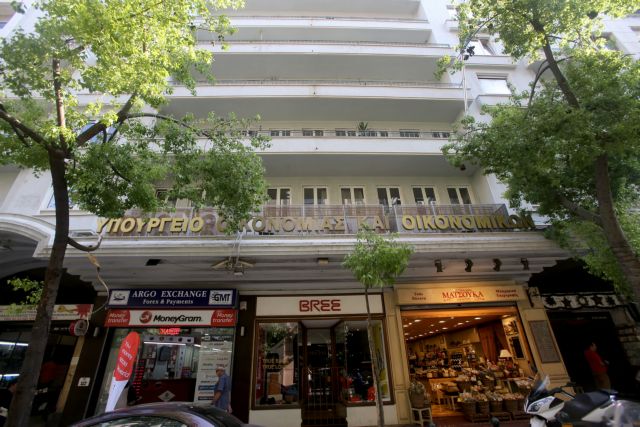An avalalanche of over a dozen new taxes and tax hikes imposed during SYRIZA’s four-and-a-half years in power is widely considered the main reason for the disastrous result of the 26 May European Parliament election.
The government’s long string of tax hikes was in large measure due to its inability to meet fiscal targets agreed to with creditors.
What drew the ire of Greece’s embattled and vanishing middle class was the government’s conscious decision – as Finance Minister Euclid Tsakalotos publicly conceded – to over-tax the middle class in order to exceed primary surplus targets of 3.5 percent of GDP agreed to with creditors and spend the extra money on pre-election handouts.
The German financial daily Handelsblatt in a report that stated that Tsipras’ legacy is a loss of competitiveness in the Greek economy noted that over-taxation of the middle class was a key reason for SYRIZA’s resounding electoral defeat in the European election.
“The Greek middle class suffered over the last years from high contributions. Tax policy is one of the main reasons for the drop in the government’s polling numbers,” the report stated.
The 17 taxes that broke the back of the middle class
Between 2015 and 2018 Greeks paid 5.5bn euros in taxes.
The 17 taxes that were imposed were as follows:
• VAT was hiked to 24 percent. Goods and services VAT was increased from 13% to 24% and there was a VAT increase on Aegean islands that had a temporary special discount. The only VAT cut was in May, 2019, on groceries and restaurants – which effectively returns only 400mn euros of a cumulative 3bn euro hike in indirect taxes.
• A fuel tax hike
• Changes in personal income tax (a lowering of the tax-free threshold, a hike in the special solidarity contribution, and a hike in taxes on revenues from real estate). A 2,100 euro tax discount was reduced to 1,900 euros which means that the 9,545 euro tax-free threshold dropped to 8,636 euros. That was linked to changes in tax brackets. The lowest, 22 percent bracket in 2016 was applied to an annual income of up to 22,000 euros whereas previously it was up to 25,000 euros. A new tax bracket of up to 30,000 euros paid 29 percent, whereas for an income of up to 40,000 euros the tax rate rose from 42% to 45%. Finally, the hitherto temporary social solidarity contribution was made permanent.
• A hike in the amount of taxes that must be pre-paid by freelance professionals
• A business tax hike
• An insurance policy tax hike
• A tax on stays at hotels and rented rooms
• Abolition of the tax break on medical bills
• Abolition of a 1.5% discount on withheld taxes
• A tax hike on cigarettes and tobacco
• A tax on short-term real estate rentals
• An income tax on company cars
• A subscription television tax
• A tax on land line phones and internet
• A beer tax hike
• A tax on coffee
• A cut in spending on heating fuel subsidies




![Λένα Σαμαρά: Ο τελευταίος αποχαιρετισμός στην κόρη του πρώην πρωθυπουργού [Εικόνες]](https://www.tovima.gr/wp-content/uploads/2025/08/11/antonis-samaras-kideia-lenas-samara-90x90.jpg)